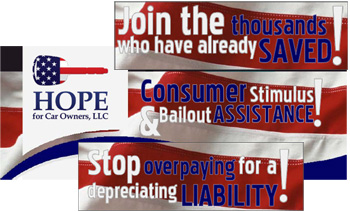As part of the Federal Trade Commission’s systematic review of all current FTC rules and guides, the agency is announcing its updated 10-year review schedule. In 2011, the FTC accelerated its regulatory review program, so that by the end of this year more than one-third of its 65 rules and industry guides will have been reviewed or will be under review. The FTC is currently reviewing 22 rules and guides, and will initiate three more reviews this year, to ensure that its rules and guides are up-to-date, effective, and not overly burdensome.
The FTC has been reviewing its rules and guides on a rotating basis since 1992. Rules and guides can be critically important for protecting consumers, but they need to be reviewed periodically. In conducting the reviews and seeking public comment, the agency considers the following questions:
- What is the economic impact of the rule or guide?
- Is there a continuing need for the rule or guide?
- Are there possible conflicts between the rule or guide and state, local, or other federal laws or regulations?
- Has the rule or guide been affected by any technological, economic, or other industry changes?
The review schedule is published each year, with adjustments in response to public input, changes in the marketplace, and resource demands.
Upcoming Regulatory Reviews
For 2012, the FTC plans to initiate reviews, and seek public comment on, the following guides:
- Guides for the Rebuilt, Reconditioned and Other Used Automobile Parts Industry. The staff contact is Jonathan L. Kessler, 216-263-3436, Federal Trade Commission, East Central Region, 1111 Superior Ave. E # 200, Cleveland, OH 44114-2577.
- Guides for the Jewelry, Precious Metals, and Pewter Industries. The staff contact is Reenah Kim, 202-326-2272, Federal Trade Commission, Bureau of Consumer Protection, Division of Enforcement, 600 Pennsylvania Ave., NW, Washington, DC 20580.
- Guides for Advertising Allowances and Other Merchandising Payments and Services. The staff contact is Michael Bloom, (202) 326-2475, Federal Trade Commission, Bureau of Competition, 600 Pennsylvania Ave., NW, Washington, DC 20580.
In addition, the FTC is consolidating the reviews of several rules involving the Hart-Scott-Rodino Antitrust Improvements Act (HSR), a federal antitrust law designed to prevent anticompetitive mergers or acquisitions. Specifically, the Commission is consolidating its reviews of the HSR Coverage, Exemption, and Transmittal Rules. The review of these three rules is now scheduled to take place in 2020.
Rules Rescinded Due to the Dodd-Frank Act
The FTC’s rulemaking authority for nine other rules has transferred to the Consumer Financial Protection Bureau under the Dodd-Frank Act. As a result, the FTC is rescinding the following rules:
- Disclosure Requirements for Depository Institutions Lacking Federal Deposit Insurance, 16 CFR Part 320 (republished by the CFPB at 12 CFR Part 1009);
- Mortgage Acts and Practices-Advertising Rule, 16 CFR Part 321 (republished by the CFPB at 12 CFR Part 1014);
- Mortgage Assistance Relief Services Rule, 16 CFR Part 322 (republished by the CFPB at 12 CFR Part 1015);
- [Identity Theft] Definitions, 16 CFR Part 603 (republished by the CFPB at 12 CFR 1022.3);
- Free Annual File Disclosures Rule, 16 CFR Part 610 (republished by the CFPB at 12 CFR 1022.130);
- Prohibition Against Circumventing Treatment as a Nationwide Consumer Reporting Agency, 16 CFR Part 611 (republished by the CFPB at 12 CFR 1022.140);
- Duration of Active Duty Alerts, 16 CFR Part 613 (republished by the CFPB at 12 CFR 1022.121);
- Appropriate Proof of Identity, 16 CFR Part 614 (republished by the CFPB at 12 CFR 1022.123); and
- Procedures for State Application for Exemption from the Provisions of the [Fair Debt Collection Practices] Act, 16 CFR Part 901 (republished by the CFPB at 12 CFR Part 1006).
The CFPB has republished these rules on an interim final basis, and the CFPB’s rules became effective on December 30, 2011. The FTC will continue to enforce these rules.
Retained Rulemaking Authority Regarding Auto Dealers
Although the FTC is rescinding nine rules pursuant to the Dodd-Frank Act, the FTC retains rulemaking authority for six rules issued under the Fair Credit Reporting Act, and one rule under the Gramm-Leach-Bliley Act, as they apply to motor vehicle dealers:
- Gramm-Leach-Bliley Act Privacy Rule, 16 CFR Part 313
- Risk-Based Pricing, 16 CFR Part 640
- Duties of Users of Consumer Reports Regarding Address Discrepancies, 16 CFR Part 641
- Prescreen Opt-Out Notice, 16 CFR Part 642
- Duties of Furnishers of Information to Consumer Reporting Agencies, 16 CFR Part 660
- Affiliate Marketing, 16 CFR Part 680
- FCRA Model Forms and Disclosures, 16 CFR Part 698
Additional Rulemaking Authority Retained by the FTC
Under the Dodd-Frank Act, the FTC retains rulemaking authority for the FCRA Disposal Rule (16 CFR, Part 682), the Identity Theft Red Flags Rule (16 CFR, Part 681.1), and the Gramm-Leach-Bliley Act’s Safeguards Rule (16 CFR Part 314).
Other Review Schedule Changes
Due to resource constraints, the FTC is announcing the following changes for matters previously scheduled for review in 2012:
- Preservation of Consumers’ Claims and Defenses Rule (Holder in Due Course Rule) will be reviewed in 2013. (This rule preserves consumers’ rights to raise claims and defenses against purchasers of consumer credit contracts.)
- Guides Against Deceptive Pricing will be reviewed in 2017.
- Guides Against Bait Advertising will be reviewed in 2017. (Bait advertising is an insincere offer to sell a product or service the advertiser does not want to sell, in order to sell something else, usually at a higher price or on a basis more advantageous to the advertiser.)
- Guides Concerning Use of the Word “Free” and Similar Representations will be reviewed in 2017.
The Commission votes to publish the proposed Federal Register notices regarding its regulatory review program and rescission of the rules were 4-0.
The Federal Trade Commission works for consumers to prevent fraudulent, deceptive, and unfair business practices and to provide information to help spot, stop, and avoid them. To file a complaint in English or Spanish, visit the FTC’s online Complaint Assistant or call 1-877-FTC-HELP (1-877-382-4357). The FTC enters complaints into Consumer Sentinel, a secure, online database available to more than 2,000 civil and criminal law enforcement agencies in the U.S. and abroad. The FTC’s Web site provides free information on a variety of consumer topics. Like the FTC on Facebook and follow us on Twitter.
(Reg Reform Project, Rescission of Nine Rules)
(FTC File Nos. P924214, P072104)



